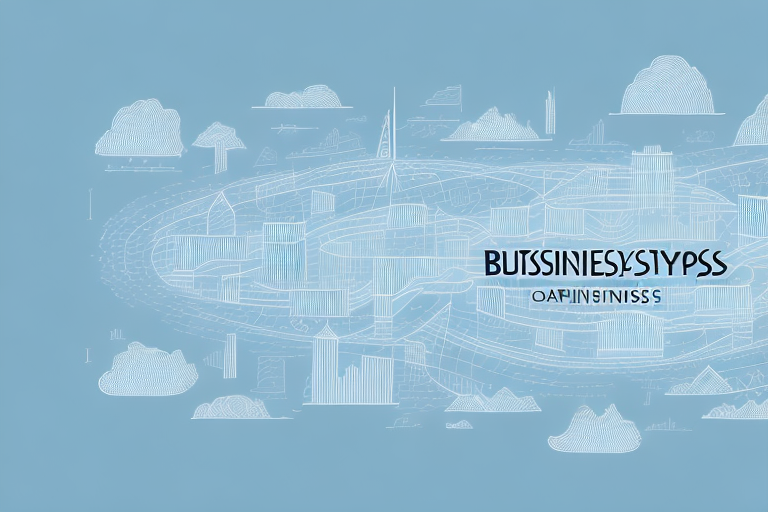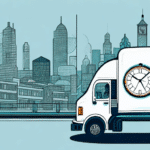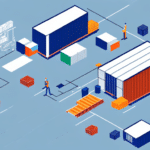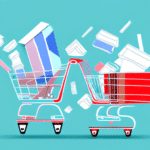Finding Valuable Fulfillment Solutions for Your Business
In the world of business, having a reliable and efficient fulfillment system in place is essential. Fulfillment refers to the process of receiving orders, processing them, and then delivering the products to the end customer. It can be a complex and time-consuming process, especially for small businesses that do not have the necessary resources and expertise in-house. In this article, we will take a comprehensive look at finding the right fulfillment solution for your business's unique needs.
What is Fulfillment and Why is It Important for Your Business?
Fulfillment is an integral part of any business that sells physical products. It involves a series of steps that need to be completed efficiently and accurately to ensure customer satisfaction and retention. A robust fulfillment process enables businesses to scale and grow while delivering consistent and reliable service to customers.
One of the key benefits of having a strong fulfillment process is that it can help businesses reduce costs and increase profitability. By streamlining the process and minimizing errors, businesses can save money on shipping, inventory management, and labor costs. Additionally, a well-executed fulfillment process can help reduce the number of returns and exchanges, which can be costly for businesses to process and can negatively impact customer satisfaction.
According to a 2023 Statista report, efficient fulfillment operations can increase customer retention rates by up to 15%, highlighting the critical role fulfillment plays in business success.
The Benefits of Outsourcing Fulfillment Services
Outsourcing fulfillment services can be a smart move for businesses looking to streamline their in-house processes and focus on their core competencies. By outsourcing, businesses can benefit from:
- Reduced operational costs
- Access to advanced technology
- Flexibility to scale up or down quickly as needed
In addition to these benefits, outsourcing fulfillment services can also improve customer satisfaction. Fulfillment companies specialize in order processing, packaging, and shipping, meaning they have the expertise and resources to ensure orders are fulfilled accurately and efficiently. This can lead to faster delivery times, fewer errors, and better communication with customers throughout the fulfillment process.
How to Choose the Right Fulfillment Solution for Your Business Needs
Choosing the right fulfillment solution for your business is a critical decision that can significantly impact your bottom line. It is essential to evaluate your business's unique needs, short and long-term goals, and budget constraints before making a choice.
Key factors to consider include:
- Customization: Assess whether the solution can accommodate your business's unique requirements, such as packaging, labeling, and shipping options.
- Customer Support: Ensure access to knowledgeable and responsive support staff who can help troubleshoot any issues. Look for multiple support channels like phone, email, and chat, and check reviews and testimonials from other businesses.
- Technology Integration: The solution should seamlessly integrate with your existing systems, such as your e-commerce platform and inventory management software.
- Scalability: Choose a solution that can grow with your business, handling increased order volumes without compromising quality.
For more insights on third-party logistics, refer to this comprehensive guide on 3PL services.
Exploring Different Types of Fulfillment Solutions Available in the Market
There are several types of fulfillment solutions available in the market, each with its own advantages and disadvantages. Some of the most popular options include:
- In-House Fulfillment: Managing the entire fulfillment process internally provides complete control but can be expensive and time-consuming.
- Third-Party Logistics (3PL): Outsourcing to a third-party provider can be cost-effective and efficient, though it may result in less control over the process.
- Dropshipping: Partnering with a supplier who ships products directly to customers requires minimal upfront investment but may result in lower profit margins.
It is essential to evaluate each option carefully and choose the one that aligns with your business goals and objectives.
Understanding the Cost Factors of Different Fulfillment Solutions
When evaluating different fulfillment solutions, it is crucial to consider the cost factors involved, such as:
- Shipping Costs: These can vary based on the volume of orders and the destinations.
- Order Processing Fees: Charges per order processed.
- Storage Fees: Costs associated with storing inventory.
- Technology Expenses: Costs for software and systems integration.
Understanding these costs helps make an informed decision and avoid unexpected expenses. For instance, if you anticipate a high volume of orders, choosing a fulfillment center that offers bulk discounts on shipping and storage fees can be more cost-effective.
Additionally, the level of customization required for your orders can impact costs. Personalized notes or special packaging can increase processing fees, whereas streamlined fulfillment processes without customization may help save costs.
Steps to Streamline Your Fulfillment Process for Maximum Efficiency
Once you have chosen a fulfillment solution, optimizing and streamlining the process is essential for maximum efficiency. This may involve:
- Investing in advanced technology
- Automating repetitive tasks
- Improving communication and collaboration among team members
Implementing a barcode scanning system can greatly reduce errors and save time by eliminating manual data entry. Regularly reviewing and analyzing fulfillment data helps identify areas for improvement and inform future decision-making. By continuously refining your fulfillment process, you can ensure maximum efficiency and customer satisfaction.
Common Mistakes to Avoid When Selecting a Fulfillment Provider
Selecting the wrong fulfillment provider can lead to costly mistakes and unhappy customers. Avoid common pitfalls such as:
- Choosing the cheapest option without considering quality
- Ignoring service level agreements (SLAs)
- Failing to evaluate the provider's technology and infrastructure
- Not considering the provider's industry experience
A provider with experience in your industry will better handle unique requirements and challenges. Ask for references and case studies to ensure the provider has a proven track record. Additionally, evaluate the provider's customer service by assessing their communication channels, response times, and support capabilities to ensure they meet your and your customers' expectations.
How to Evaluate the Success of Your Chosen Fulfillment Solution
Evaluating the success of your chosen fulfillment solution is critical for ensuring continued growth and success. Key performance indicators (KPIs) to consider include:
- Order Accuracy: The percentage of orders fulfilled correctly.
- Delivery Times: The speed at which orders are delivered to customers.
- Customer Satisfaction Scores: Feedback from customers regarding their fulfillment experience.
- Cost Efficiency: Balancing cost against quality of service provided.
- Scalability: The ability of the fulfillment solution to grow with your business.
Regularly monitoring these KPIs helps identify areas for improvement and ensures that the fulfillment solution continues to meet your business needs. Balancing cost with service quality is essential, as a low-cost solution may compromise customer satisfaction and ultimately affect your business negatively.
The Role of Technology in Modern-Day Fulfillment Services
Technology plays a vital role in modern-day fulfillment services. Advanced software, automation tools, and machine learning algorithms help improve efficiency, reduce errors, and enhance the overall customer experience.
One significant benefit of technology in fulfillment services is the ability to track packages in real-time. With GPS and RFID technology, customers can monitor their orders from shipment to delivery, providing peace of mind and enabling businesses to identify and address potential delivery issues promptly.
Robotics is another transformative technology in fulfillment services. Automated robots can pick and pack items, reducing the need for human labor and increasing efficiency. Robots can operate around the clock, allowing businesses to fulfill orders faster and more accurately than ever before.
For more information on modern fulfillment technologies, refer to industry reports from sources like the Forbes Technology Council.
Case Studies: Successful Businesses That Have Implemented Effective Fulfillment Solutions
Learning from the experiences of successful businesses can provide valuable insights and inspiration. Here are two notable examples:
- Amazon: Through the use of advanced robotics and automation technology, Amazon has streamlined its fulfillment process, significantly reducing delivery times and increasing order accuracy. Their investment in fulfillment centers equipped with robotic systems has set industry standards for efficiency.
- Zara: The fashion brand Zara has implemented a just-in-time inventory system, ensuring they always have the right products in stock while minimizing excess inventory and waste. This approach allows Zara to respond quickly to fashion trends and customer demands.
By studying the strategies and successes of these businesses, other companies can gain valuable insights into optimizing their own fulfillment processes and improving customer satisfaction.
Future Trends in the World of Fulfillment and Logistics
The world of e-commerce and logistics is constantly evolving, with new trends and technologies emerging every year. Understanding these trends and their potential impact can help businesses stay ahead of the competition and adapt to changing market conditions.
Key future trends include:
- Increased Automation: The rise of robotics and artificial intelligence will continue to automate warehouses and distribution centers, leading to greater efficiency and reduced labor costs.
- Sustainable Practices: Companies are increasingly adopting eco-friendly practices, such as using electric vehicles for transportation, implementing recycling programs, and reducing packaging materials to minimize their carbon footprint.
- Advanced Data Analytics: Leveraging big data and machine learning to optimize supply chain operations, predict demand, and enhance decision-making.
- Omnichannel Fulfillment: Integrating multiple sales channels (online, in-store, mobile) to provide a seamless customer experience across all platforms.
Staying informed about these trends and incorporating relevant advancements can help businesses enhance their fulfillment operations and maintain a competitive edge in the market.
Conclusion: Finding the Perfect Fit for Your Business's Unique Needs
In conclusion, finding the right fulfillment solution for your business's unique needs requires careful consideration of various factors, including cost, technology, scalability, and customer satisfaction. By choosing the right solution and optimizing the process for maximum efficiency, businesses can streamline their operations, improve customer satisfaction, and achieve long-term success.



















